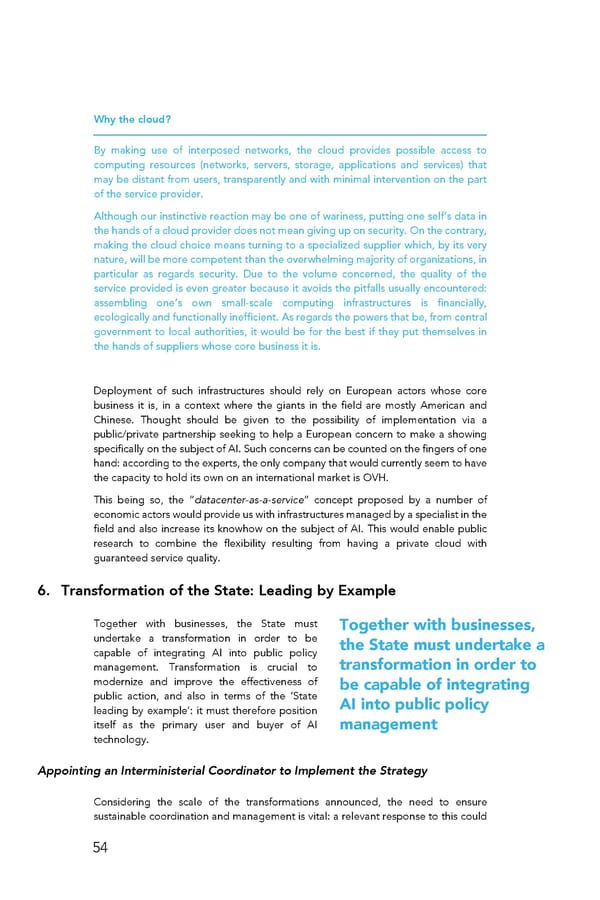Why the cloud? By making use of interposed networks, the cloud provides possible access to computing resources (networks, servers, storage, applications and services) that may be distant from users, transparently and with minimal intervention on the part of the service provider. Although our instinctive reaction may be one of wariness, putting one self’s data in the hands of a cloud provider does not mean giving up on security. On the contrary, making the cloud choice means turning to a specialized supplier which, by its very nature, will be more competent than the overwhelming majority of organizations, in particular as regards security. Due to the volume concerned, the quality of the service provided is even greater because it avoids the pitfalls usually encountered: assembling one’s own small-scale computing infrastructures is financially, ecologically and functionally inefficient. As regards the powers that be, from central government to local authorities, it would be for the best if they put themselves in the hands of suppliers whose core business it is. Deployment of such infrastructures should rely on European actors whose core business it is, in a context where the giants in the field are mostly American and Chinese. Thought should be given to the possibility of implementation via a public/private partnership seeking to help a European concern to make a showing specifically on the subject of AI. Such concerns can be counted on the fingers of one hand: according to the experts, the only company that would currently seem to have the capacity to hold its own on an international market is OVH. This being so, the “datacenter-as-a-service” concept proposed by a number of economic actors would provide us with infrastructures managed by a specialist in the field and also increase its knowhow on the subject of AI. This would enable public research to combine the flexibility resulting from having a private cloud with guaranteed service quality. 6. Transformation of the State: Leading by Example Together with businesses, the State must Together with businesses, undertake a transformation in order to be the State must undertake a capable of integrating AI into public policy transformation in order to management. Transformation is crucial to modernize and improve the effectiveness of be capable of integrating public action, and also in terms of the ‘State AI into public policy leading by example’: it must therefore position itself as the primary user and buyer of AI management technology. Appointing an Interministerial Coordinator to Implement the Strategy Considering the scale of the transformations announced, the need to ensure sustainable coordination and management is vital: a relevant response to this could 54
 For a Meaningful AI - Report Page 54 Page 56
For a Meaningful AI - Report Page 54 Page 56